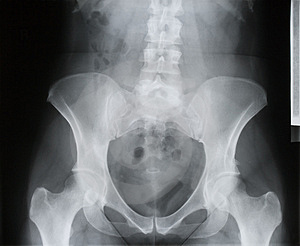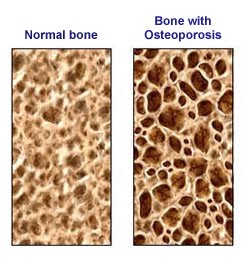 Years ago, I was diagnosed with osteopenia. Osteopenia is when one’s bone mineral density is lower than normal, and it’s usually the precursor to osteoporosis. The doctor who diagnosed me gave me very little direction on what to do to care for my bones, and I left the office very upset at the diagnosis as well as the lack of information provided. I took matters into my own hands — did my research on bone health and began implementing the care into my weekly routine and diet. I incorporated foods that were rich in calcium (listed below), cut back (almost completely) on my caffeine consumption as well as my sugar intake. I made sure that I was consistent with weight bearing exercises each week (mine being yoga, brisk walks/jogs, light weight training) as well as making sure that I was getting at least 10-15 minutes of direct sunlight (with no sunscreen) for enough vitamin D to absorb the calcium I was consuming. I invested in a wonderful bone health (I started on New Chapter’s Bone Strength, Take Care but now take Great Lake’s Collagen powder daily) and vitamin D3 supplement, which I took to be safe.
Years ago, I was diagnosed with osteopenia. Osteopenia is when one’s bone mineral density is lower than normal, and it’s usually the precursor to osteoporosis. The doctor who diagnosed me gave me very little direction on what to do to care for my bones, and I left the office very upset at the diagnosis as well as the lack of information provided. I took matters into my own hands — did my research on bone health and began implementing the care into my weekly routine and diet. I incorporated foods that were rich in calcium (listed below), cut back (almost completely) on my caffeine consumption as well as my sugar intake. I made sure that I was consistent with weight bearing exercises each week (mine being yoga, brisk walks/jogs, light weight training) as well as making sure that I was getting at least 10-15 minutes of direct sunlight (with no sunscreen) for enough vitamin D to absorb the calcium I was consuming. I invested in a wonderful bone health (I started on New Chapter’s Bone Strength, Take Care but now take Great Lake’s Collagen powder daily) and vitamin D3 supplement, which I took to be safe.
One year later after my new doctor (I told the doctor who diagnosed me to take a hike after that whole incident!) reviewed my bone density scan, he smiled and said, “What have you been doing?! The scan is no different than last years which means whatever you’re doing is working, preventing any further bone loss. Keep it up!” He was happy (and impressed) to hear what I had been doing to keep my bones strong. Also, during a teeth cleaning, my dentist commented on how strong and healthy my teeth were looking. One of the first places a doctor can see deterioration or weakness in the bones is in the teeth!
This was all very good news and I have continued with caring for my bones as such. I have faith that my bone scan will continue to be good news from now on.
…OK, onto the information to help your bones!
Calcium is a mineral needed by the body for healthy bones, teeth, and proper function of the heart, muscles, and nerves. The body cannot produce calcium; therefore, it must be absorbed through food. Bones play many roles in the body. They provide structure, protect organs, anchor muscles, and store calcium. Adequate calcium consumption and weight bearing physical activity build strong bones, optimizes bone mass, and may reduce the risk of osteoporosis later in life.
Getting the calcium and vitamin D you need is easier than you think — if you eat the right foods. Because of heavy promotion by the American dairy industry, the public often believes that cow’s milk is the sole source of calcium. However, other excellent sources of calcium exist in a variety of different forms. You have to remember that the dairy industry’s number one goal is to sell more dairy products. The truth is that pasteurized dairy products have been linked to a laundry list of diseases, ailments and increased bone loss.
you think — if you eat the right foods. Because of heavy promotion by the American dairy industry, the public often believes that cow’s milk is the sole source of calcium. However, other excellent sources of calcium exist in a variety of different forms. You have to remember that the dairy industry’s number one goal is to sell more dairy products. The truth is that pasteurized dairy products have been linked to a laundry list of diseases, ailments and increased bone loss.
